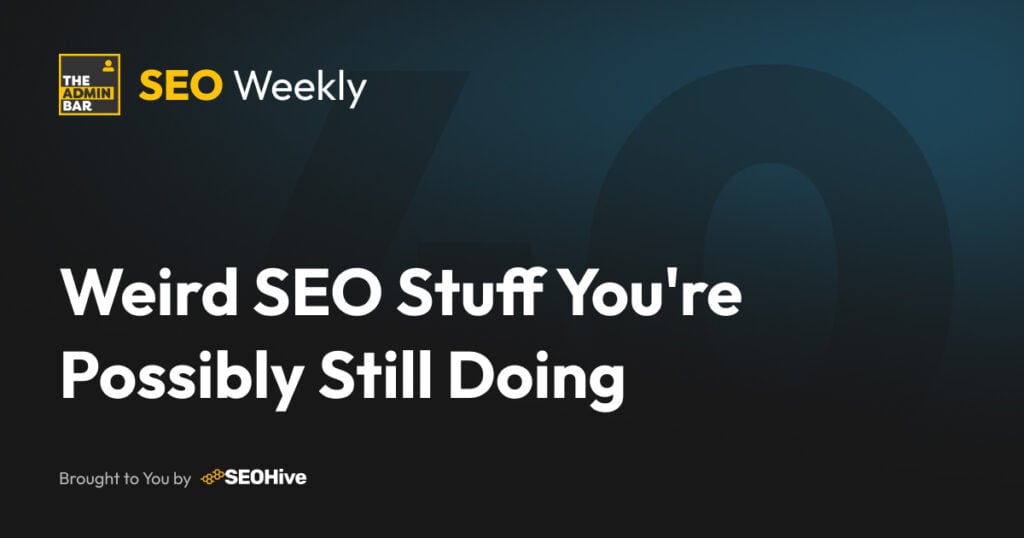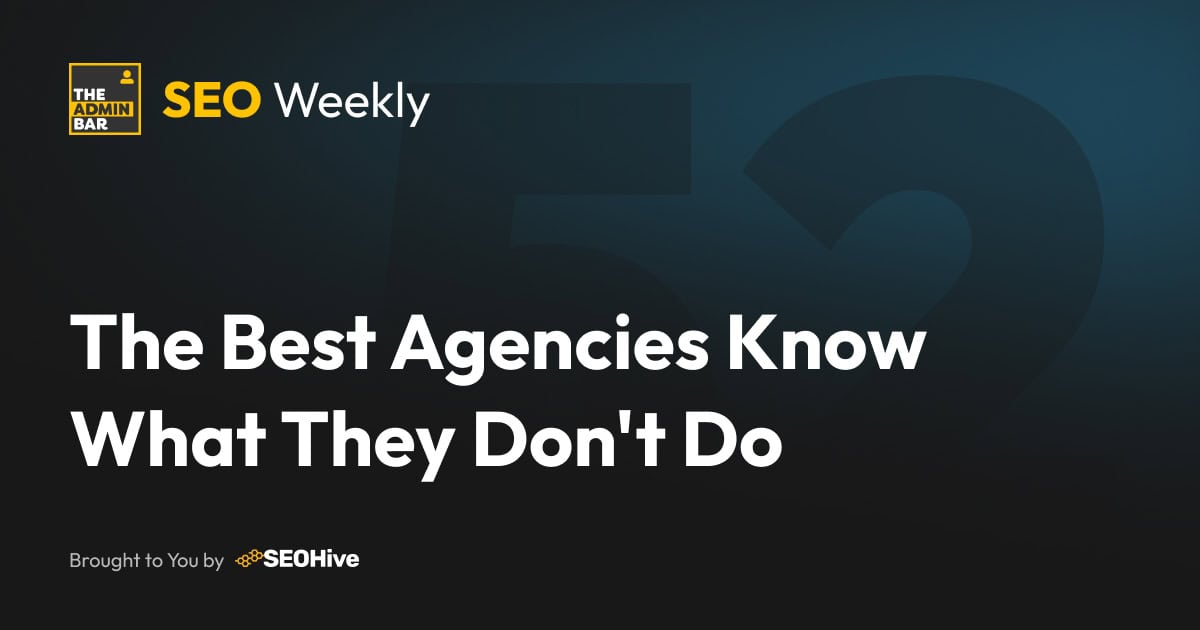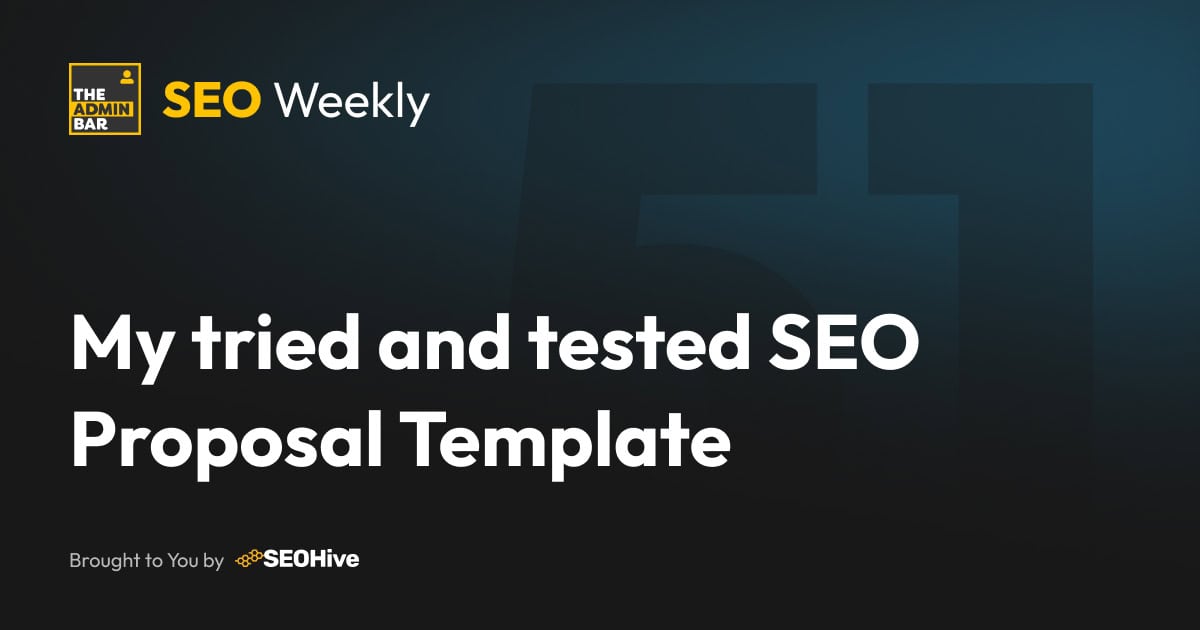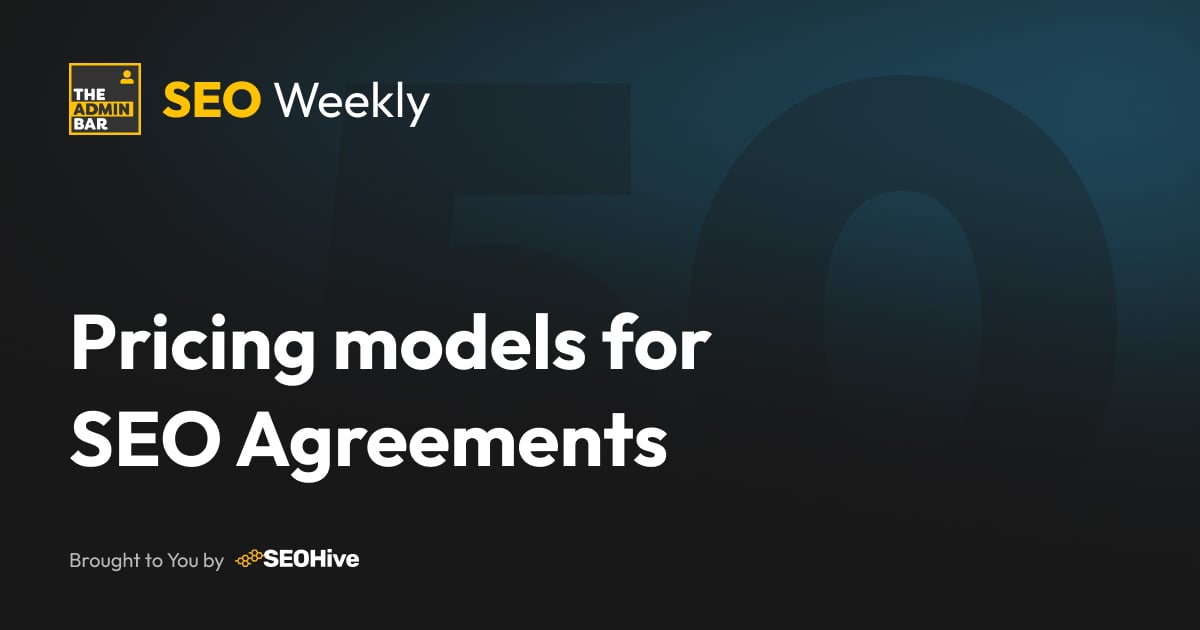After last week’s topic got a little spicy (go check it out!). Let’s have some fun this week and talk about the SEO practices that make me tilt my head like a confused dog when I see them in the wild. 🐶
I don’t mean the obvious outdated tactics everyone knows are dead – I’m talking about the subtle, sneaky habits that have crept into “standard practice” that either never worked, stopped working quietly, or are just, well, weird when you actually think about them.
These are the things many of us do (or certainly have done) on autopilot – the boxes you tick without asking why, and the “best practices” that deserve a serious second look.
🔀 “301 Redirects Lose Link Equity” (Spoiler: They Don’t Anymore)
Many still believe that 301 redirects lose X% of link equity (it was always rumoured to be 15%), so you should avoid them whenever possible and definitely never chain them.
However, back in 2016, ****Google’s Gary Illyes confirmed that 301s and 302s don’t lose PageRank anymore. Yet I still see agencies contorting themselves to avoid necessary redirects, or worse, leaving broken links in place because “redirects hurt SEO.”
Best practice for 2025 is this: you SHOULD use redirects when they make sense. Migrate sites properly. Fix your URL structure if it needs fixing. Yes, avoid redirect chains where possible (i.e. 4 or more redirects in a row as they slow things down), but don’t sacrifice user experience or proper site architecture because of outdated link equity fears.
📊 Obsessing Over “Keyword Density” Percentages
I know some agencies who still calculate exact keyword density percentages (2-3% is the magic number, right?) for each page and adjust content to hit that target 🙄
In reality, Google hasn’t used simple keyword density calculations in over 15 years. Now-a-days they use TF-IDF, semantic analysis, entity recognition, and context understanding. Essentially, purely counting keywords is caveman SEO.
However, it’s not all down to agencies why this practice keeps happening. Many SEO plugins still show it, “SEO tools” still calculate it, and it feels scientific and measurable so we trust it.
It’s been covered very thoroughly that you should simply write naturally. Cover topics comprehensively. Use variations and related terms because that’s how humans actually communicate, not because you’re trying to hit a magic percentage – Google has NLP and AI to gather the meaning from your content and interpret it for user intent.
✅ “Fresh Content” Mentality
No word of a lie – and this is the one that inspired this post – but we had a client who religiously updated the publication date on old content, changed a few sentences, and called it “fresh content” to trigger the “freshness” ranking factor.
Google’s “Query Deserves Freshness” (QDF – not a Google Acronym that comes out very often) algorithm isn’t fooled by date manipulation. It evaluates actual content changes, user engagement patterns, and whether the topic genuinely benefits from recency. Changing “2023” to “2024” and the publish date doesn’t trigger freshness signals – it’s just dressing mutton up as lamb.
It’s far better to actually update content when there’s new information to add, outdated information to correct, or improved ways to help users. It’s also often helpful to know which content is performing for you and which is dead (can can simply be culled) to improve your site relevancy. (Oh, and you’ll need some 301 redirects if you do this! 😂)
🚫 Nofollow-ing Every External Link to “Preserve PageRank”
I’ll be honest, I’ve never understood this one… Remember “www” – that stands for “world wide web” – and when you generate content you need to knit it into that web to help it rank. Unless you’re some major publication, being trivial and nofollow-ing all your external links is just signalling you don’t want to contribute to the web – so what’s the point?! It’s actually an EEAT killer.
This mentality is “PageRank sculpting” logic from the early naughties that Google explicitly killed. Natural linking patterns include external links. Sites that never link out actually look suspicious. Google wants to see you’re contributing to part of the web ecosystem
To be clear, I’m NOT saying link to everything. But, DO link to relevant, authoritative sources when they add value for your users. Use nofollow for paid links, user-generated content, and genuinely untrusted sources. That’s it. Linking out to quality resources can actually strengthen your content’s perceived expertise.
📝 All Content Must Be X,000 Words+
This is always an awkward one… Technically speaking, word count hasn’t actually been a ranking factor in at least the last 15 years, however, there is correlation between how long an individual piece of content is, and it’s ability to rank well…
That doesn’t mean you can just go and wax-lyrical about all and sundry on every page however… Your website needs to build topical authority, and that means covering a topic thoroughly without the site / page becoming unusable to users because every page resembles a novel.
Your minimum word count is contextual to the sites you’re competing with on page 1. If they’re all averaging around 400 words, and you turn up with 3,000 – that’s overkill… However, if you write 400 and they’re all at 2,500+, then you’ve brought a knife to a gun fight.
Tools like SurferSEO can help you benchmark against the competition quickly – we use it constantly for this exact reason.
🏠 “Everyone starts at the homepage”
This one comes in various guises – from clients wanting to get their entire business on their homepage so it ranks for everything, through to ALL user journeys starting on the homepage… Here’s a thought, what if someone enters the site somewhere else?
Of course, the entire point of content marketing is to create new assets on your website that can rank on their own merit and generate backlinks into your site. Both of these result in users actually landing on your site directly on the content you’ve created – so what does a user do from there?
Whilst this is really a UX issue, it has huge consequences for SEO if you’re essentially created cul-de-sacs of content.
🏷️ Canonical Tags as “Duplicate Content Insurance”
There seems to be a genuine misunderstanding of Canonical Tags that contribute heavily to this…
Canonical tags tell Google “this page is substantially the same as that other page, so treat that one as the primary version.” They’re not a duplicate content safety net for genuinely different pages, and self-referential canonicals on every page (while not harmful) are usually redundant.
I’ve seen agencies canonical tag color variations of products to a single page (losing legitimate ranking opportunities), or canonical tag blog posts to category pages (making the actual content invisible to search engines).
Canonicals should ONLY be used for actual duplicate or near-duplicate content situations – print versions, URL parameter variations, syndicated content. Don’t use them as a band-aid for poor site architecture or as “duplicate content insurance” when you have legitimately unique pages.
Manually Submitting Every URL to Google 🖱️
For most established sites with proper XML sitemaps and decent crawl budget, manual URL submission is not necessary. Google crawls based on your site’s overall authority, update frequency, and crawl budget allocation.
Clicking “Request Indexing” for every blog post is like yelling at your microwave to heat faster. Even then, it is far better to configure instant indexing on the site end, so it is automatic, rather than doing the manual process of going into Search Console…
There are a small handful of occasions where is may be necessary (if instant indexing isn’t in place) – these are: time-sensitive content, major site migrations, completely new sites, or fixing de-indexed pages. That’s it.
You’re better off fixing your XML sitemap, improving your internal linking, and letting Google’s crawlers do their job – they’re pretty good at it. If pages still aren’t getting indexed, you have a crawl budget, site authority, or content quality problem – not a submission problem.
🔕 The Silent Shifts Nobody Noticed
Finally, here are some really interesting that have changed SO gradually many haven’t even noticed:
Google Business Profile eclipsing traditional local SEO signals for many queries. I see agencies still obsessing over local citations while ignoring GBP optimization that would drive 10x the impact.
AI Overviews and featured snippets eating click-through rates on informational queries. Optimizing for position #1 in traditional results isn’t the win it used to be if there’s an AI Overview above you stealing all the clicks.
Brand signals becoming disproportionately important – to the point where branded search volume, direct traffic, and brand mentions might matter more than backlinks for some queries.
But here’s what I REALLY want to know… Why do we keep doing things without asking “does this still matter?”
Usually it’s because:
- It’s in our process documentation from X years ago
- A tool tells us to do it (and who questions the tools?)
- A client expects it because their previous agency did it
- It feels like “doing SEO” even if it doesn’t move the needle
So I hope this post has given you some food for thought, and that might just question once in a while WHY you’re doing something… Afterall, it might be better if you don’t?!
I’d love to hear what you’re doing on autopilot that might deserve a second look. What’s in your SEO process that you do because “that’s how we’ve always done it”? Drop it in the comments – let’s figure out what we can all stop wasting time on 😍
Join the Conversation!
There's a dedicated thread on this post inside of The Admin Bar community. Join in on the conversation, ask questions, and learn more!
Group Thread





